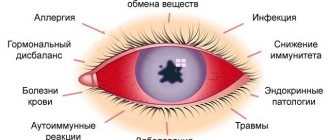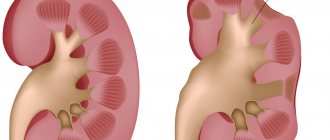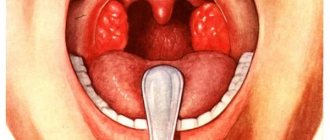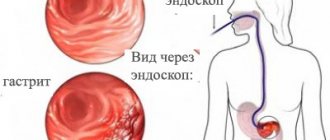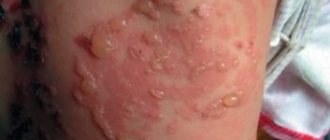Treatment of persecutory delusions includes selection of pharmacotherapy and work with a psychotherapist. Typically, biological treatment produces results within a few days after the start of therapy. When using outpatient tactics, it is important not to neglect follow-up visits to the doctor and not to conceal subjective feelings about your current state of health - this will help the doctor adjust the treatment and discontinue pharmacotherapy.
It is important for the patient and his relatives to understand that the disease has a high risk of relapse. Therefore, you should not skip taking prescribed medications or completely abandon treatment after a positive effect from pharmacotherapy has been achieved.
Treatment in a hospital is sometimes necessary to relieve an acute condition, extensive examination and rapid selection of pharmacotherapy. The exacerbation is relieved in 2–3 days, the selection of pharmacotherapy takes 3–4 weeks due to intensification of treatment. Forming remission also includes working with psychologists and psychotherapists who will help get rid of addictions that arise during the long course of the disease.
Consultation with a doctor for the treatment of persecutory delusions:
+7
Thank you for your trust!
- Diagnosis and treatment without registration
- Selection of therapy on an outpatient basis, anonymously
- Help from a psychotherapist and psychiatrist
| Service | Price | |
| Ambulatory treatment | ||
| Psychiatrist consultation | 4 500 ₽ | |
| Appointment with a psychotherapist | 4 500 ₽ | |
| Reception of the chief physician Bocharov A.V. (Associate Professor, Candidate of Medical Sciences) | 6 000 ₽ | |
| Consultation with a psychiatrist at home | 6 000 ₽ | |
| Treatment in hospital | ||
| Delivery to hospital | For free | |
| Standard room | 7 700 ₽ | |
| 3-bed superior room | 10 600 ₽ | |
| 2-bed superior room | 13 700 ₽ | |
| 1 local VIP chamber | 19 000 ₽ | |
| Doctor's appointment 2 weeks after discharge | For free | |
Causes of the disease
Mainly, persecution mania as a symptom is observed during paranoid schizophrenia, the depressive stage of bipolar disorder, psychotic depression, as well as during the period of alcoholic or drug-induced delirium. It should also be taken into account that in patients with severe depression, temporary persecutory mania is sometimes provoked by antipsychotic medications (dopaminergics) or drugs to eliminate the depressive state.
In neurodegenerative brain diseases of aged patients, delusions of persecution are one of the most common signs of senile dementia, Alzheimer's and Parkinson's diseases.
How to behave to others?
First of all, it is necessary to help a sick person understand his problem and convince him to see a psychotherapist. It is very important to find a specialist who will find an approach to such a patient. The success of treatment and the emotional state of the patient largely depend on the level of trust in psychotherapists and psychiatrists.
You should also monitor the intake and dosage of medications prescribed by your doctor.
It is necessary to be patient and try to provide a favorable psycho-emotional atmosphere. There is no need to show excessive anxiety and negative reactions; all these actions encourage retaliatory attacks of aggression.
Relatives of a patient diagnosed with persecution mania should put themselves in the patient’s shoes, so if a person believes that some secret organization wants to kill him, then there is no need to convince him of the opposite.
Symptoms of persecution mania
The symptoms that appear during persecution mania are varied. The patient imagines that those around him intend to harm him. These can be not only real people, but also non-existent creatures. The patient is even able to voice a reason for spying on him. When the patient experiences unfortunate circumstances, he believes them to be a consequence of the actions of the persecutors.
Delusions of persecution, along with the symptoms described above, can be detected by such manifestations as:
- social maladjustment (the patient is unable to act surrounded by people due to feelings of constant threat);
- panic attacks or increased anxiety;
- the attitude of others is seen as hostile;
- behavioral transformations, increased secrecy and the presence of distrust of other people.
Schizophrenia symptoms
The signs of the disease are clearly indicated by doctors. All symptoms of schizophrenia are divided into 4 large groups:
- positive;
- negative;
- disorganized;
- affective.
Positive symptoms
Positive signs of schizophrenia were not previously inherent in the patient, are not specific traits of his character, and arise exclusively against the background of the disease. The term “positive” implies the emergence of new qualities, in this case it is not used as “good”. This group of symptoms includes:
- inappropriate reactions to people and events;
- constantly excited state;
- delusions, illusions, hallucinations.
Inappropriate behavior is expressed in the form of stupid actions, excessive nervousness, inconsistency of manners and appearance of a certain situation. This category includes two types of mental disorders - depersonalization and derealization. The first represents a violation of internal boundaries: a person’s personality seems to be split into two parts. One of them performs certain actions, the second watches them and cannot interfere. The body and thoughts seem foreign to a person, as if someone else had settled inside him. This “tenant” dictates his own rules, indicates the need to perform certain actions.
Derealization is characterized by increased perception of various factors (sounds, smells, shades). It seems to a person that everything that happens has no connection with reality, this is a kind of theater in which each “actor” plays his own role.
Catatonia is considered one of the variants of inappropriate behavior in schizophrenia. The person falls into a stupor, takes an awkward position and remains in it for a very long time. Any attempts from the outside to bring him out of this state are doomed to failure. Schizophrenics have great muscle strength and are able to successfully resist.
Hebephrenia is also a type of inappropriate behavior. Regardless of where the patient is, he behaves stupidly, constantly laughs, fools around, jumps on the spot, makes grimaces. Discussions about the inappropriateness of such behavior lead nowhere. Attempts to appeal to conscience end in failure.
Hallucinations are a complex of sensations of a specific nature that do not really exist. They are inextricably linked with the human senses and are divided into gustatory, visual, olfactory, tactile and auditory. In schizophrenia, the patient most often suffers from auditory hallucinations. In the surrounding space or in his own head, he hears voices conducting a coherent conversation with him. They can give commands, which the schizophrenic often obeys, to calm or make people laugh. Hallucinations lead to the development of delusional ideas. A schizophrenic is absolutely sure that everything that happens to him is real, and his loved ones deceive him for an unknown purpose.
Negative symptoms
The category of negative symptoms in schizophrenia characterizes signs that have disappeared or changed their functions. If before the onset of the disease a person’s character had certain traits and qualities, after the manifestation of the disease they either disappear completely or become less pronounced.
This category includes:
- loss of vital energy, motivation to act;
- lack of initiative in everyday and professional matters;
- physical passivity;
- decreased thinking functions, impaired cognitive processes;
- narrowing the range of interests;
- emotional poverty, apathy, indifference to what is happening;
- movements become sluggish and sluggish;
- self-control is weak or absent;
- the patient cannot construct an algorithm of sequential actions;
- he is unable to derive pleasure from external stimuli.
Lack of motivation for everything leads to personality degradation (similar symptoms are observed during the treatment of Pick's disease). Schizophrenics strive for social isolation, they often do not leave the house, and neglect the rules of personal hygiene. Their appearance becomes sloppy, which alienates others. You can understand that a person has schizophrenia by the following features of his speech:
- he constantly jumps from one topic to another, interrupts himself, constructs an incoherent speech;
- uses new, often awkward words that he comes up with;
- repeatedly repeats individual phrases and sentences after others;
- speech becomes rapid and incoherent;
- begins to speak in rhyme;
- answers to questions are monosyllabic, incomplete or unclear;
- in the absence of thoughts, he suddenly withdraws into himself, stopping the conversation.
Often in schizophrenics, thinking disorder is expressed in reasoning. A person constantly talks about topics he has come up with, even if they try to involve him in another conversation or interrupt him, he does not react to this.
Disorganized symptoms present difficulties with spatial orientation. These include chaotic behavior, problems with thinking and impaired speech functions. Affective symptoms are expressed in a constantly depressed mood. Schizophrenics are often depressed and try to get out of this state on their own by starting to use alcohol or psychotropic substances. They are visited by suicidal thoughts, which can be realized at one moment. The patient often blames himself for everything, even if he has nothing to do with what is happening.
Diagnosis of persecution mania
Symptoms of persecutory mania are diagnosed by psychiatrists based on significant signs and a study of medical history, including family history. The presence of psychotic disorders in relatives in the previous generation is revealed. It is checked what medications the patient is using and whether there is any abuse of alcohol or use of psychoactive substances.
It may be necessary to examine brain activity to detect potential anatomical or traumatic morphological disorders of some of its structures, as well as cerebral vessels. For this purpose, an EEG, CT or MRI may be prescribed.
General information
Delusion or persecution mania is a severe psychological state, in a word, paranoia. Signs that characterize the patient are the perception of reality in the wrong form, the inability to lead the usual way of life, the appearance of manic ideas that completely control the person’s consciousness. If someone tries to explain to a patient that everything is made up, is only in his head, the result of his imagination, he will run into misunderstanding. The replacement of reality with fictitious events is typical, deviations in adaptation to the normal process of life are observed, a person is not able to lead an ordinary life, work, communicate with other people, panic attacks are increasingly occurring, which indicate the presence of a serious mental pathology, and not the wild imagination of the individual.
Treatment of delusions of persecution
When treating persecutory delusions, the most important goal is to identify the main pathology against which the disease developed.
Treatment of persecutory mania is usually carried out in an inpatient setting. It consists of drug treatment and psychotherapy.
Modern medicine provides medical treatment for persecutory mania using antipsychotic drugs. Drugs in this group act as dopamine receptor antagonists, inhibiting the activity of this neurotransmitter in the brain, and also reduce the manifestation of signs of the disease.
In addition, treatment of persecutory delusions is carried out using cognitive behavioral therapy, aimed at helping the patient deal with their fears.
In addition, there is a need to treat the underlying disease.
Schizophrenia symptoms and signs in women
At an early stage of the disease, the first symptoms in women manifest themselves in the form of hallucinations and delusions. The emotional background becomes unstable, depression and apathy arise towards everything that previously aroused interest. These signs may remain the only ones and exist for several years until productive symptoms appear. Patients and their relatives have no idea that the disease has already taken root.
Patients become unfriendly, strive for social isolation, avoid contacts, and often become irritated over trifles. The woman’s manner of speaking changes dramatically. She cannot explain to others what she wants to convey to them or limits herself to short phrases and takes a long time to select the right words.
Women with this diagnosis feel like they are being influenced by hypnosis, they can hear the voices of aliens, and often see pictures and even entire films in their heads. Patients complain of a shooting sensation, burning or drilling in the brain.
The feeling of attachment to loved ones and children is lost, the patient treats them as strangers. Women are more likely than men to be interested in magic and otherworldly forces. Therefore, they perceive their condition as the emergence of magical possibilities or the influence of magicians and sorcerers on themselves.

